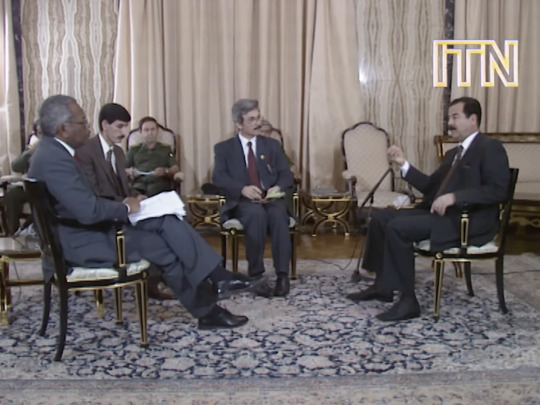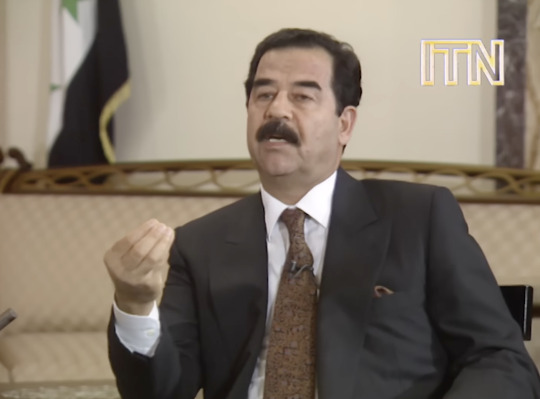#ExecutionDebate
Explore tagged Tumblr posts
Text
Saddam Hussein: A Controversial Perspective.
Introduction:
After rewatching the the execution of Saddam Hussein in 2006 I thought I'd do a blog on him. It was a momentous event that stirred global debates on justice, accountability, and the ethics of capital punishment. While acknowledging the atrocities committed during his regime, some argue that the decision to hang Saddam Hussein was overly influenced by political motivations, and that he may not have deserved the ultimate punishment assigned to him. I also watched ITN Exclusive: Saddam Hussein Interviewed on the Eve of the Gulf War (1990) on YouTube it is very insightful.

Contextualising Saddam Hussein's Regime:
Saddam Hussein, the former President of Iraq, undoubtedly presided over a regime marked by brutality, human rights abuses, and suppression of dissent. His invasion of Kuwait in 1990 and the subsequent Gulf War resulted in immense suffering for the Iraqi people. However, critics argue that the portrayal of Hussein as the epitome of evil may have been exaggerated for political reasons.
Influence of Political Motivations:
The execution of Saddam Hussein occurred amidst a tumultuous period in Iraq, marked by sectarian tensions and a fragile political landscape. Some critics believe that the decision to execute Hussein was influenced by a desire to establish a sense of closure and justice for the Iraqi people, as well as to send a message to other dictators in the region.

Flaws in the Judicial Process:
Detractors of Hussein's execution point to flaws in the judicial process, arguing that it lacked international legitimacy and transparency. They claim that the trial may have been politically motivated and that the rush to execute him did not allow for a thorough examination of the complexities surrounding his regime.
Exploring Alternatives to Execution:
Those who question the hanging of Saddam Hussein advocate for alternative forms of justice, such as a life sentence or an international tribunal. They argue that these options would allow for a more comprehensive examination of the crimes committed during his regime and promote a deeper understanding of the historical context.
Conclusion:
The debate surrounding the execution of Saddam Hussein remains highly controversial, with opinions sharply divided on whether he deserved the ultimate punishment or if alternative forms of justice could have been pursued. While acknowledging the atrocities committed during his rule, some argue that the rush to execution may have been influenced by political considerations, raising questions about the fairness and transparency of the judicial process. Ultimately, the execution of Saddam Hussein continues to be a subject of intense debate, prompting reflection on the complexities of justice in the aftermath of oppressive regimes.
#SaddamHussein#CapitalPunishment#Iraq#PoliticalJustice#HumanRightsAbuses#GulfWar#InternationalLaw#ControversialDecisions#WarCrimes#Dictatorship#JudicialProcess#HistoricalContext#GlobalDebates#EthicsOfExecution#SectarianTensions#MiddleEastPolitics#InternationalTribunal#Atrocities#RegimeChange#ExecutionDebate#today on tumblr
0 notes